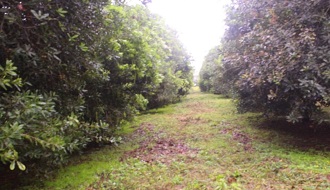
The Eye of the Needle: Church Mission and Investment
*By Father Joseph Mkinga
In Luke 18:22, Jesus tells a wealthy young man to ‘sell all that you own and distribute the money to the poor.’ Jesus goes on to say, ‘it is easier for a camel to go through the eye of a needle than for a rich man to enter the Kingdom of God.’ When we look at both scripture and tradition, we find Christians wrestling with how to apply the teachings of Jesus and how to care for the poor. It is very clear that even among early Christians, the Acts of the Apostles and Pauline Churches, the teaching of renunciation of wealth never took root. However, there was a serious commitment to address the gap between the poor and the rich in their communities.
The motto of Karonga Diocese is ‘We shall go to them’. This motto is at the center of the nature of the Church as a mission. God’s plan of salvation is meant for all peoples and all nations (Mt 28:19). That’s what we see happening after Pentecost, Christ’s disciples go out to spread the Gospel. Evangelism, belongs to the very nature of the Church. There is no sharing in Christ without sharing in his mission. This focus on Christ’s mission of going to all peoples has a number of consequences for the missionary church. Echoing the words of Late Bishop Zuza of Mzuzu, ‘Nyengo yakwana’ (It is time) for the local church to support its own mission.
In order to reach out and touch everyone with the message of Christ within and beyond the diocese, Karonga Diocese requires enormous resources to fulfill the implications of its mission. To reduce overdependence on external financial assistance in support of its missionary initiatives enshrined in the motto; ‘we shall go to them’. The Diocese of Karonga embarked an investment drive through agribusinesses ventures. Among the initiatives is Chipunga Farms Limited; an agribusiness outfit that specializes in coffee and macadamia plantations.
The Diocese of Karonga acquired Chipunga Farms Limited in January, 2018. Chipunga Farms Limited is a limited liability company and to date, comprises of three farms namely; Mughese Coffee Farm at Misuku in Chitipa District, Chiwela Farm in Rumphi District and the main farm Chipunga Farm. Chipunga Farm has 286.46 hectares (ha) of land of which 160.0 ha is earmarked for coffee and macadamia plantations in the next 5 years. The farm is located in Chikwina, Nkhata-Bay District in Traditional Authority Mnyaluanga. It is 25 kilometres to the North East of Mzuzu City. The Farm has 37.0 ha of land planted with coffee in three stages, the older one is 5 years and is in its third harvest in 2023, the medium is 3-year-old and the other one is 1 years old. In addition to coffee, the farm has also 31.0 ha of macadamia, of which 18.79 ha is productive and 12.21ha of macadamia is 3 years old.
We have arrived at a critical juncture in our life together. We cannot deny the fact that life has changed a lot more than we envisaged. We are at a point where only the most adaptive to change survive (Charles Darwin). In as much as the Church wishes to spread the gospel, there is no denial of the role of money in fulfilling the church mission. We cannot cast a blind eye on the fact that external support is diminishing at a fast rate than we could wish.
While there has been considerable discernment about the best way of deploying our meagre financial resources collected from the faithful, we must recognize the sad reality before us. The Church does in fact require more financial assistance to pay salaries, maintain property, build churches, schools, hospitals and support all other institutions of evangelization including the radio station. At the same time, our reading of the signs of the times, has led us to understand that in addition to the many ministry projects that the diocese undertakes, our investment strategy and approach should be informed by our sense of vocation and call. St Paul, the Apostles, reminds us in Acts 18:1-4, that he made tents, in order to earn money to support himself in his real ministry of witnessing to Christ. It is certainly true that Paul wants to support himself. Yet his intention was not only to support himself in his preaching ministry, but also to provide financial support to the needy.
When Paul describes his economic impact among the Ephesians, he says: I coveted no ones’ silver or gold or apparel. You yourselves know that these hands ministered to my necessities, and to those who were with me, in all things I have shown you that by so toiling one must help the weak,remembering the words of Jesus Christ, how he said, ‘It is more blessed to give than to receive.’ (Acts 20:33-35).
Paul’s money earning work was an effort to build up the community. He sets an example for everyone to follow in enhancing the common good and support of the weak. This gives the basis for the diocese of Karonga to toil in order to help the weak and to support the mission. Tent making has become a common metaphor for the church to engage in a money-earning enterprise as means to support church mission. It is thus very clear that money-earning is for the building of the Kingdom of God. As such, the question is how moral is the enterprise that raises these funds. And of what benefit are the funds towards the common good.
Christian life has been marked by considered concern for the poor, a principle that bears witness to God’s goodness. From the days of Jesus Christ to the early church described in Luke-Acts, a wrestling with how to deploy financial resources for the common good has ensued. We find in the writings of early theologians like Clement of Alexander and St Augustine of Christians believing in a just society where resources are shared with those in need (The Epistle to Diognetus).
Though one cannot determine a precise starting point for socially responsible investing, there are elements of such conscientious practices in Christian tradition reminding us that humanity should use money for building the Kingdom of God, and not to exploit others. Otherwise, riches without a responsible social concern can yield worse outcomes and capitalist culture. Thus, it is easier for a camel to pass through the eye of a needle than for the rich to enter the Kingdom of Heaven if the money-earning enterprise is deprived of ethics. That is, if riches are not used for common good and for the building of the Kingdom of God.
The early church was intensely interested in the common good- in creating communities that ensured peoples essential needs were provided for. The leaders of the early church knew that they could never achieve such a reality without the spiritual and moral transformation of those who had the resources. They knew that they could never provide essential needs if the people saw their enterprise as singularly their own. Instead, the enterprises had the capacity to be used for the ministry to benefit both owners and those who had a need. And this ultimately, is the point I would like to leave you with. That one of the great spiritual transformations of Karonga Diocese is how people think about money. That the Diocese approaches money with intention and conviction about its purpose in spreading the Gospel and building the Kingdom of God.
In investing, Karonga Diocese, does not depart from traditional Christian teaching. It is merely embracing what has been traditionally and biblically taught. That by …going to them, it is our purpose and calling to minister to others using our spiritual gifts and financial resources ethically, mindfully and creatively. Only then could our riches help us lead us to heaven.
*The author, Rev. Fr. Joseph Mkinga, Acting General Manager for Chipunga Farms Limited
